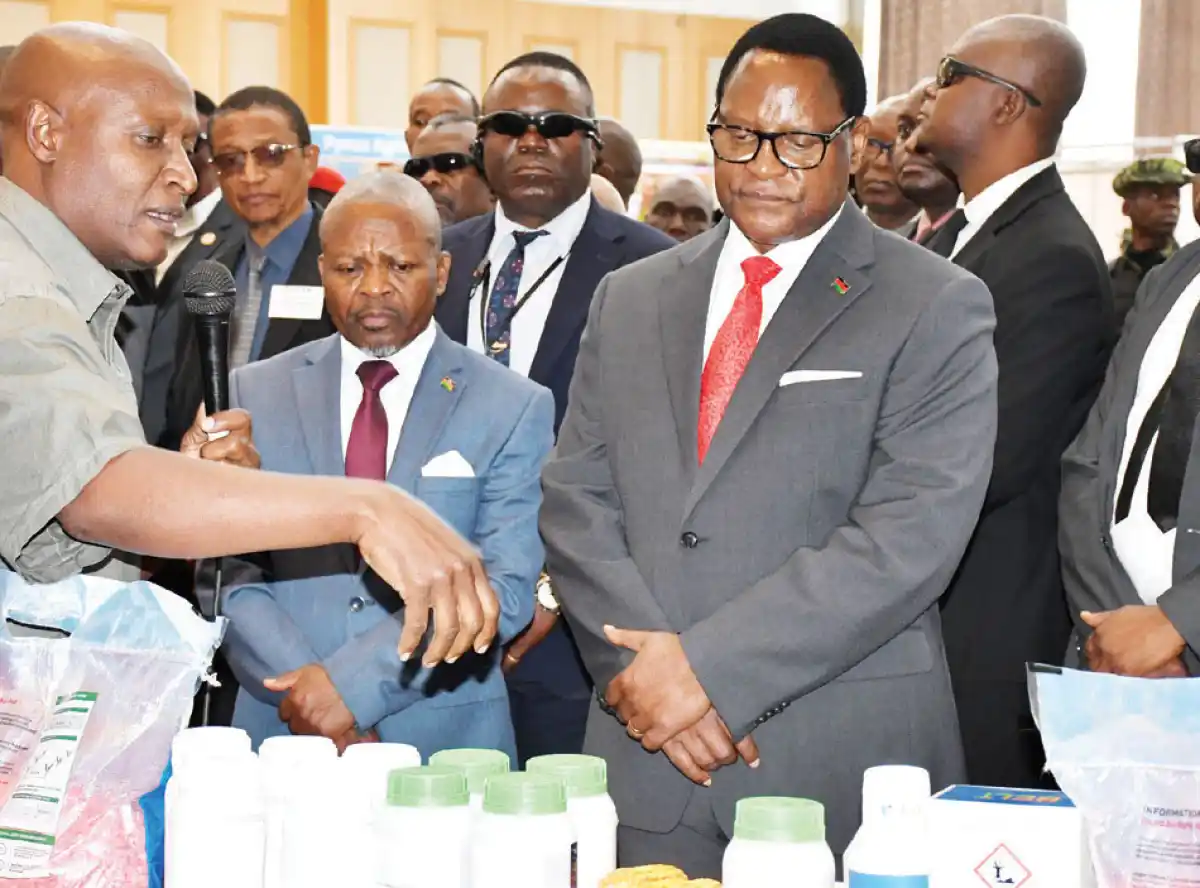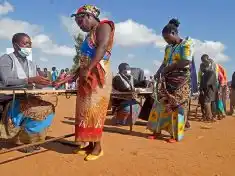

By Deogratias Mmana:
President Lazarus Chakwera has said his government is committed to develop the capacity and productivity of farmers, describing it as key to meeting national and international goals.
He said this in Lilongwe Wednesday, when he opened the Southern Africa Confederation of Agriculture Unions (Sacau) annual conference.
Sacau has 19 member national farmers’ associations in 12 countries in southern Africa, spanning from small, medium to large-scale commercial sectors of the farming community.
Chakwera said to reaffirm its commitment, his administration has increased the budgetary allocation to agriculture, aligning it with the Malabo declaration’s 10 percent national budget target.
The President further said Malawi’s development and implementation of the national agriculture policy, which is aligned with CAADP goals, has provided a strategic framework for sustainable agricultural development.
“We are making these efforts because our farmers are under attack from the devastating impacts of climate change events such as cyclones Ana, Gombe, and Freddy, as well as the El Nino weather that have all hit us in quick succession in the four years that I have been President, creating acute food shortages and threatening our people with hunger and significantly disrupting the implementation of various agricultural programmes in this country,” Chakwera said.
He said other initiatives taken by the government towards meeting the Malabo declaration include capacity building and improved extension services.
The Malawi leader said these have empowered farmers.
He also said initiatives such as the Affordable Inputs Programme have enhanced food productivity.
Chakwera also said in line with the Malabo declaration, his government has launched programmes to end hunger, promote climate-smart agriculture, improve market access and prioritise gender and youth inclusion in agriculture.
Taking his turn, Farmers Union of Malawi President Maness Nkhata said it was likely that countries in southern Africa would not meet some of the agricultural targets because of challenges such as negative effects of climate change.
“As you are aware, 2025, which is just next year, is the finishing line for the commitments that African Heads of States and Governments made towards agricultural transformation through the Malabo Declaration.
“However, with 2025 fast approaching, the results of the 4th CAADP [Comprehensive Africa Agriculture Development Programme] biennial review released this year paint a gloomy picture, as most governments are far from achieving their targets.
“Among the key barriers is climate change. The Sadc [Southern African Development Community] region is facing a humanitarian crisis, with the livelihoods of more than 61.7 million people under threat due to El Niño-induced droughts in the just-ended farming season,” Nkhata said.
Nkhata said the conference would offer 12 member states an opportunity to retrace their steps and deliberate on salient issues that are negatively affecting farmers and the farming business in the region.
“It is for this reason, Your Excellency, that the theme for this regional conference is ‘Putting Farmers at the Centre of Climate Resilience through Multi- Stakeholder Cooperation’.
Heads of state and government of the African Union met in Malabo, Equatorial Guinea, from June 26 to 27 2014 when they, among other things, committed to ending hunger in Africa by 2025.
They also committed to be allocating at least 10 percent of their public expenditure to agriculture and be ensuring that at least 30 percent of their farm, pastoral and fisher households are resilient to climate and weather related risks.
In 2014, countries that form Sacau made commitments to accelerate agricultural growth and transformation for shared prosperity and improved livelihoods by 2025.
In his remarks, Sacau President Sinare Sinare commended Malawi for its commitment to agricultural development.
He was quick to call for the allocation of adequate resources and continued strengthening of the implementation of relevant policy frameworks.
“We support the government’s initiative in implementing early warning systems and disaster preparedness plans to mitigate risks and protect farmers’ livelihoods.
“However, concerning loss and damage associated with climate change impacts, Sacau calls for supportive policies and interventions, including resilient agriculture practices and community support mechanisms,” Sinare said.
He also called for multi-stakeholder cooperation among government agencies, farmer organisations such as National Smallholder Farmers Association of Malawi (Nasfam) and Fum, non-governmental organisations and private sector players for leveraging resources and expertise towards impactful agricultural development.
“Let us invest in adequately monitoring and evaluation mechanisms to ensure accountability and transparency in policy implementation while resilience-building initiatives strengthen Malawi’s capacity to respond to natural disasters and climate-related challenges,” Sinare said.








0 Comments